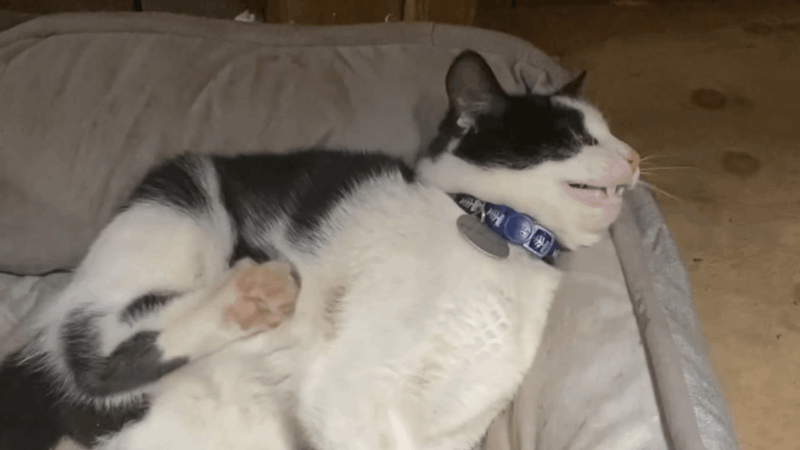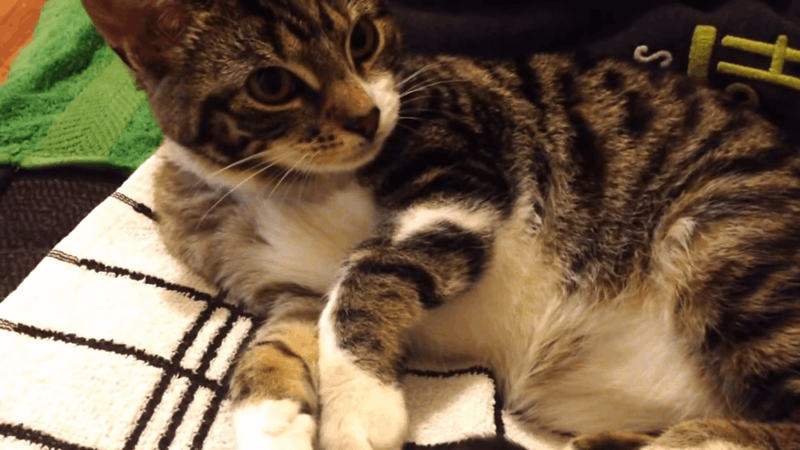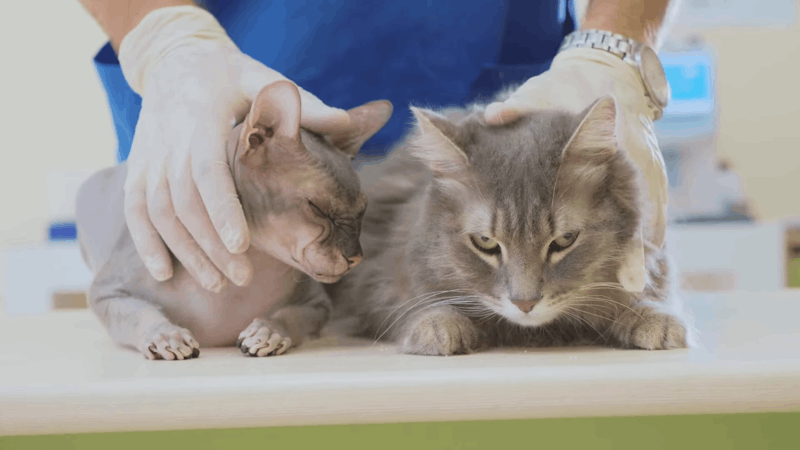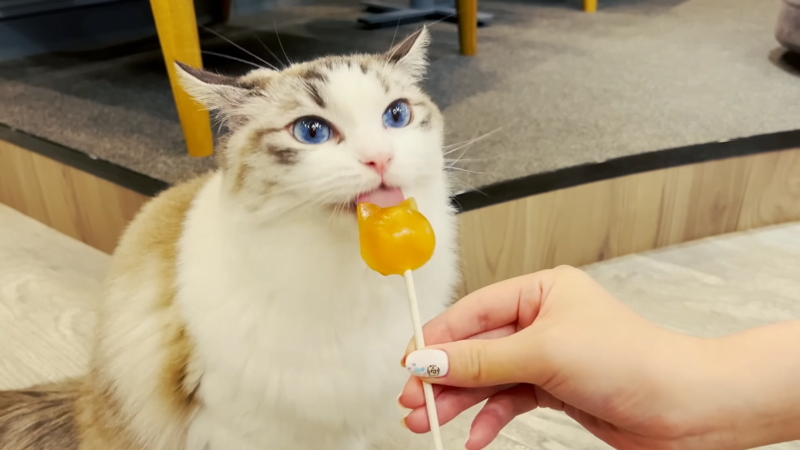No products in the cart.
Epilepsy in cats can significantly impact their general health. Cats affected by epilepsy experience recurring seizures, which can lead to discomfort, confusion, and changes in behavior. However, worries about the health of felines with epilepsy have stoked interest in alternate management strategies, including the potential application of CBD oil.
In this blog, we will discover epilepsy in cats, CBD oil for epilepsy, can cats have epilepsy, and does CBD help with epilepsy. Additionally, we will explore the impact of epilepsy on cats’ quality of life, the causes and triggers of epilepsy in cats, and the potential benefits of using CBD oil as a complementary approach for managing feline epilepsy. By understanding and managing feline epilepsy, we can help improve the well-being of our beloved feline companions.
Definition of Epilepsy in Cats
A neurological condition called epilepsy is characterized by recurring convulsions or seizures. The aberrant electrical activity in the brain that causes seizures causes brief interruptions in regular brain function. In cats, epilepsy is considered a chronic condition, meaning that it persists over time. Each cat will experience epileptic seizures differently, and they might vary in length, frequency, and intensity. Some cats may experience mild seizures that are barely noticeable, while others may have more severe and prolonged seizures.

Impact of Epilepsy on Cats’ Quality of Life
The life quality of cats can be significantly impacted by epilepsy. Seizures can be distressing and disorienting for cats, causing physical discomfort and confusion. Cats may exhibit fear or anxiety during and after seizures, which can result in behavioral changes. The unpredictability of seizures can also lead to stress and anxiety in both cats and pet owners. It may be difficult for cats with epilepsy to engage in typical behaviors like eating, grooming, and playing since it can interfere with their regular routines and activities. The condition can also affect their overall well-being and may require adjustments to their living environment and lifestyle to minimize triggers and ensure their safety.
Causes and Triggers of Epilepsy in Cats
The exact causes of epilepsy in cats are often unknown, but there are several potential contributing factors.
- Genetic susceptibility: Certain breeds may have a higher occurrence of epilepsy due to genetic factors.
- Structural abnormalities in the brain: Deformities or scar tissue in the brain resulting from prior wounds or infections can contribute to epilepsy.
- Head injuries: Traumatic head injuries from accidents or falls can lead to the development of epilepsy.
- Brain tumors: The presence of tumors in the brain can cause epileptic seizures in cats.
- Infections: Bacterial or viral infections, such as meningitis, can be a potential cause of epilepsy.
- Toxins: Exposure to certain toxins or chemicals can trigger seizures in susceptible cats.
- Metabolic issues: Imbalances in metabolic processes can affect brain function and contribute to epilepsy.
- Stress: High levels of stress or anxiety can act as triggers for seizures in some cats with epilepsy.
- Changes in habits or surroundings: Disruptions or significant changes in a cat’s routine or environment can provoke seizures.
- Specific substances or treatments: Certain medications, chemicals, or treatments may have seizure-inducing effects on susceptible cats.
- Sensory stimulation: Bright lights, loud noises, or intense sensory experiences can trigger seizures in some cats.
The Effects of CBD Oil for Epilepsy on Cats
The impact of CBD oil on cats with epilepsy can differ. Although scientific research specifically focusing on CBD oil for feline epilepsy is limited, anecdotal evidence indicates that it might potentially decrease the occurrence and intensity of seizures in certain cats. Some cat owners have shared their experiences of observing a reduction in seizure activity after using CBD oil for their cats.

How CBD Interacts With Epilepsy in Cats
CBD interacts with the endocannabinoid system (ECS) in cats’ bodies. The ECS plays a role in regulating various bodily functions, including seizure activity. CBD is believed to modulate the ECS by interacting with cannabinoid receptors in the brain and nervous system. By doing so, CBD may help regulate neuronal activity and reduce the occurrence of seizures. More investigation is required to properly comprehend the effects of CBD on feline epilepsy, as the precise mechanisms underlying these interactions are still under investigation.
Benefits of CBD Oil for Cats With Epilepsy
The potential benefits of cat CBD oil for cats with epilepsy include:
- Seizure reduction: Certain epileptic cats may experience fewer and less severe seizures while using CBD oil. It has been reported by some cat owners that their cats experienced a noticeable reduction in seizure activity after using CBD oil.
- Anti-inflammatory properties: CBD oil possesses anti-inflammatory properties, which can be beneficial for cats with epilepsy. Since inflammation in the brain can affect the intensity and onset of seizures, CBD’s anti-inflammatory properties may be able to help lessen this inflammation.
- Relaxation and stress relief: Cats with epilepsy often experience anxiety and stress related to their condition. CBD oil has calming effects and may help reduce anxiety and promote relaxation in cats.
- Potential neuroprotective effects: According to some research, CBD may have neuroprotective capabilities that can help shield the brain and nervous system from harm brought on by seizures. This could potentially slow down the progression of epilepsy in cats.
Can Cats Have Epilepsy?
Yes, just like humans, cats can indeed experience epilepsy. It’s a neurological condition characterized by recurrent seizures. Convulsions, jerking, or even momentary loss of consciousness are some of the alarming symptoms of cat seizures. If you notice your feline friend displaying such symptoms, it’s crucial to consult with a veterinarian to get a proper diagnosis and guidance on how to support them through this condition.

Does CBD Help With Epilepsy in Cats?
Researchers from the University of North Carolina School of Medicine conducted a study in 2019 that indicated CBD could potentially reduce seizures and normalize brain activity in individuals with Angelman syndrome, a rare neurological development disorder. In both human and canine investigations, CBD has demonstrated anticonvulsant and antiepileptic activities. CBD was discovered to have advantageous benefits in a study concentrating on generalized seizures, which impact both sides of the brain and frequently result in loss of consciousness.
Another trial had comparable findings, demonstrating that CBD decreased the incidence of severe tonic-clonic seizures, which are characterized by a loss of consciousness followed by muscle spasms lasting up to two minutes.
The data mentioned above imply that CBD might be useful in treating both generalized and localized seizures.
Although there hasn’t been any direct research on the effects of CBD use in seizure-prone cats, the therapeutic advantages may be similar to those seen in humans and dogs because all animals’ ECSs function in a way that is similar to each other.

Conclusion
Epilepsy can greatly affect the well-being of our beloved feline companions. They might feel scared or anxious, which might cause them to behave differently. The causes of epilepsy in cats can vary, making it challenging to pinpoint the exact triggers. However, anecdotal evidence suggests that CBD oil may offer some relief by reducing the frequency and intensity of seizures in certain cats While more research is needed, CBD oil shows promise as a potential complementary approach in managing feline epilepsy. By providing the right care and support, we can help our furry friends lead fulfilling lives while minimizing the impact of seizures on their overall well-being.
I am Nelson Cooper, I pursue my passion for writing and my belief is that cats love humans. I enjoy traveling and have a deep appreciation for the beauty of nature, as well as a soft spot for animals, particularly cats.


